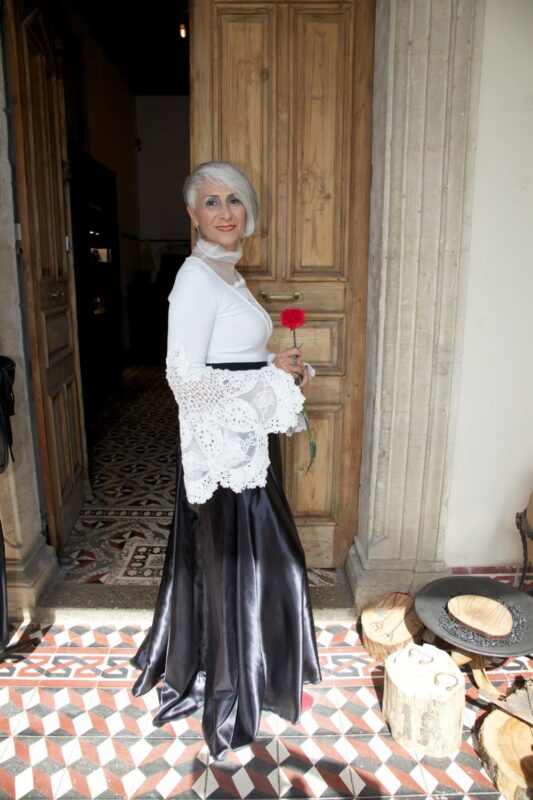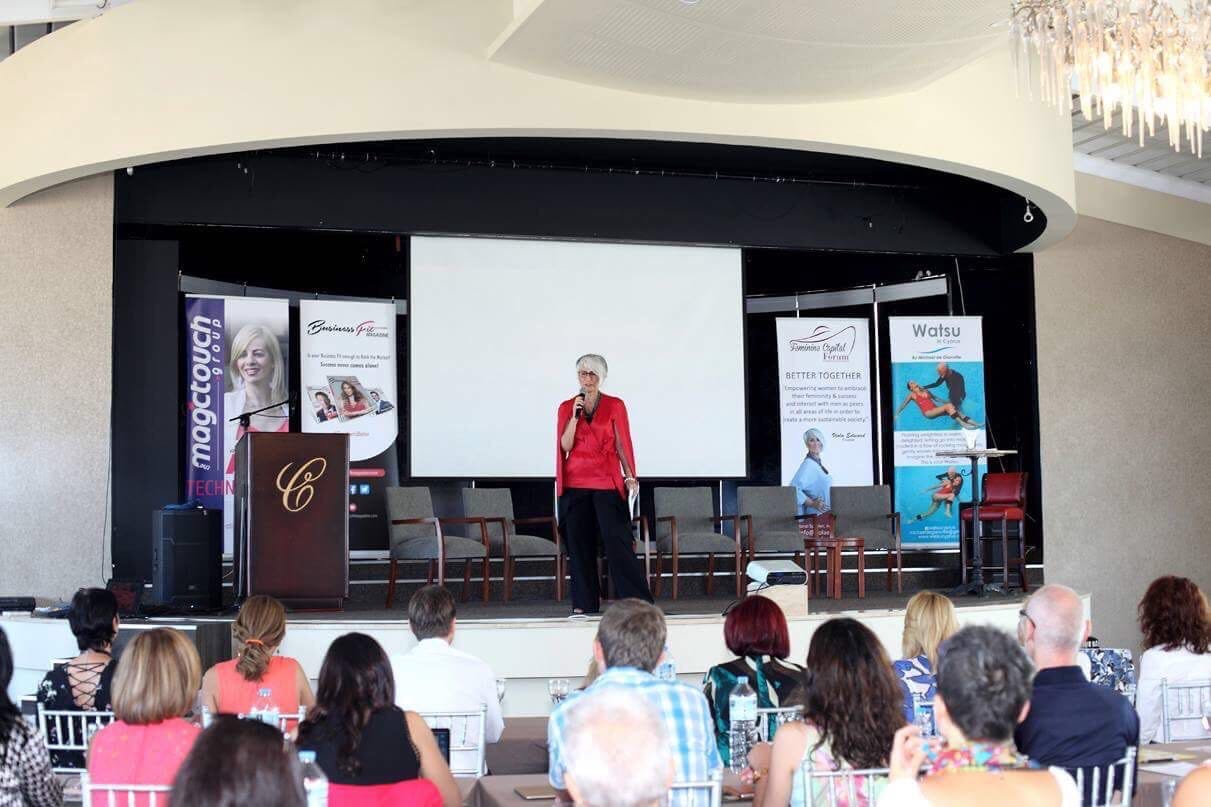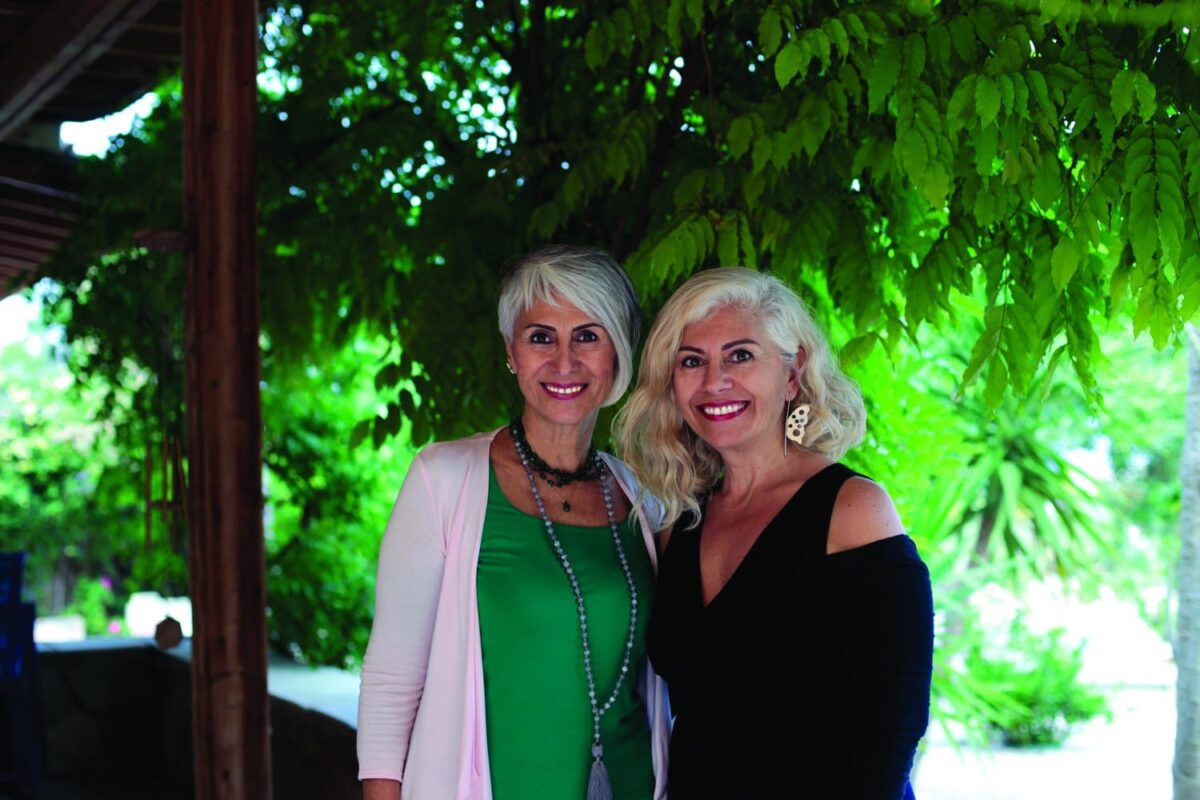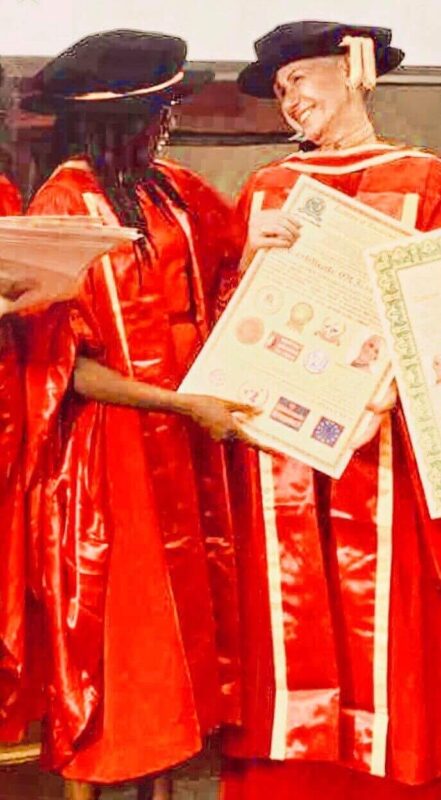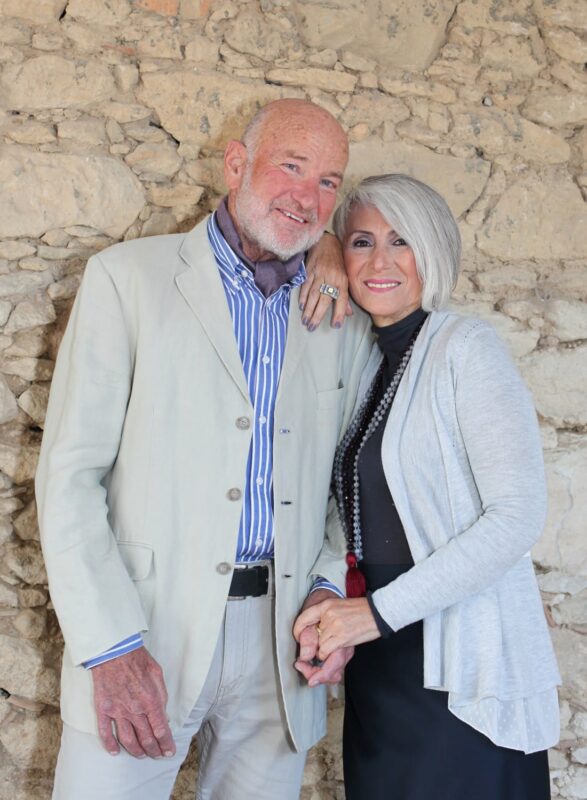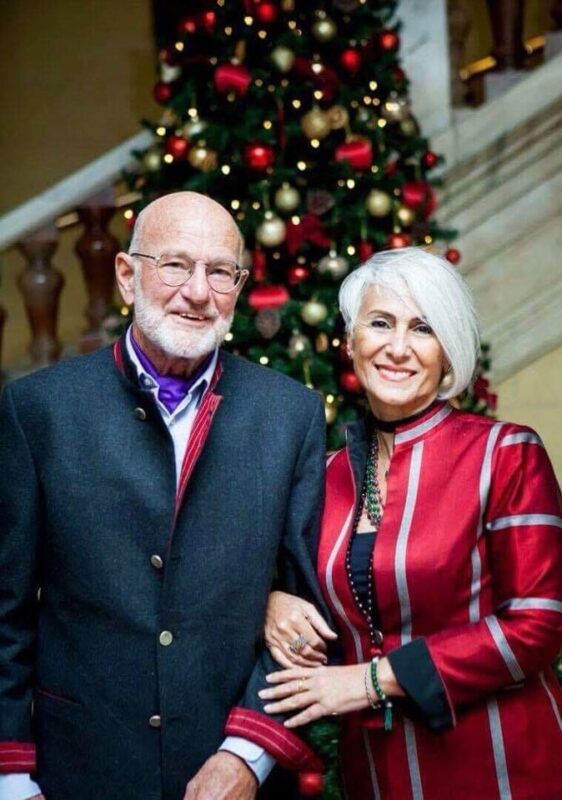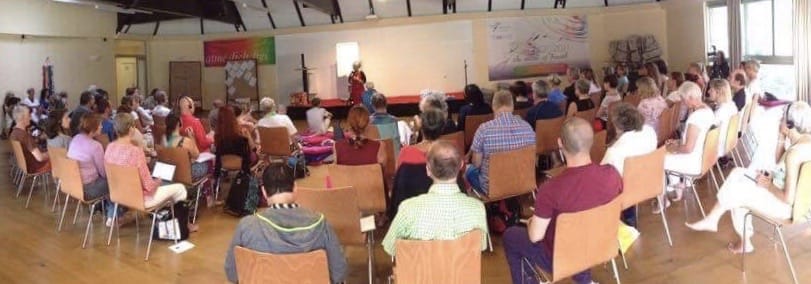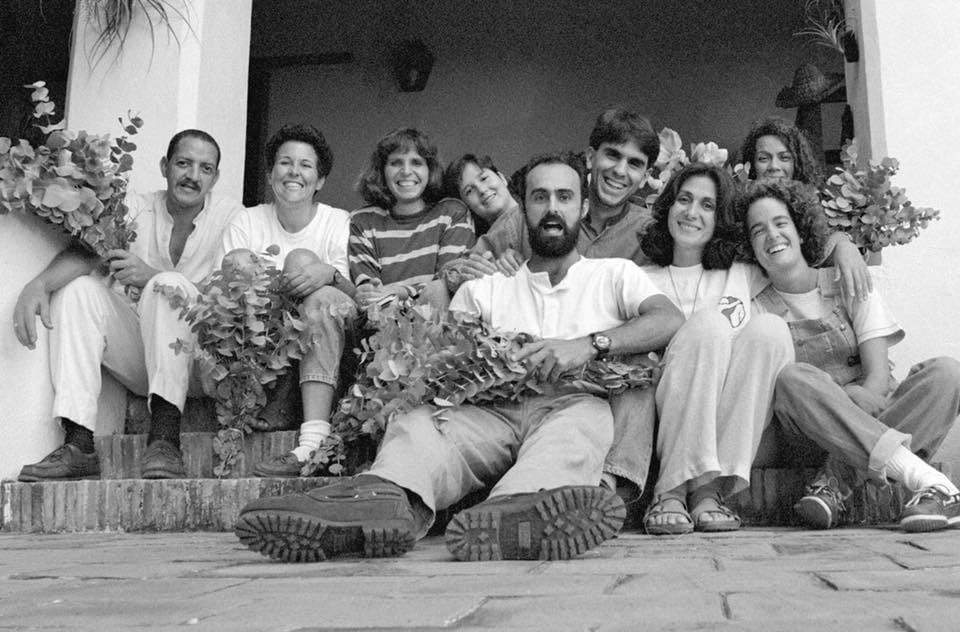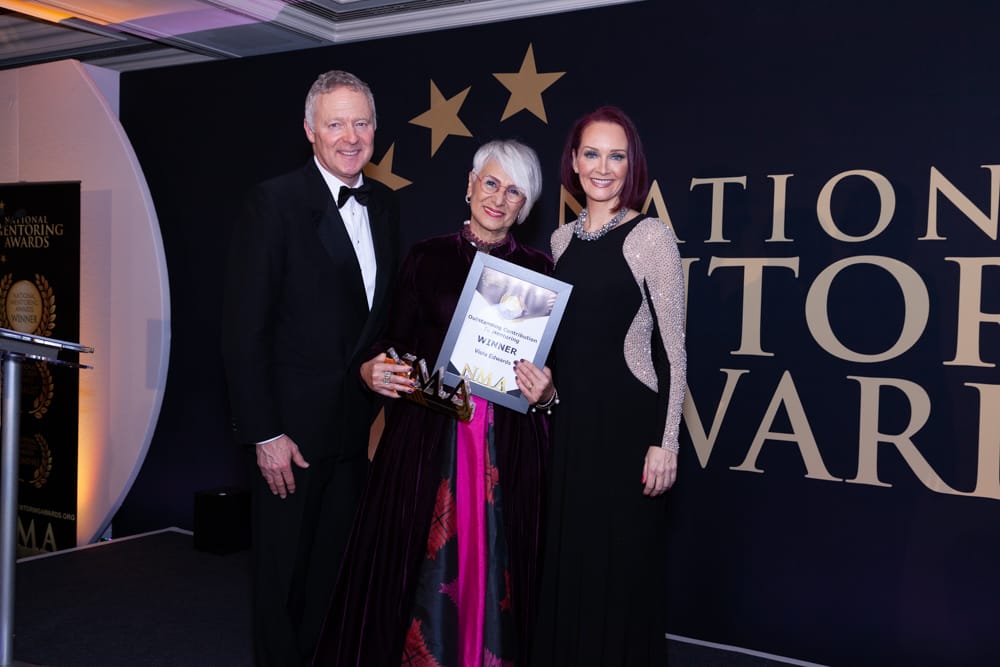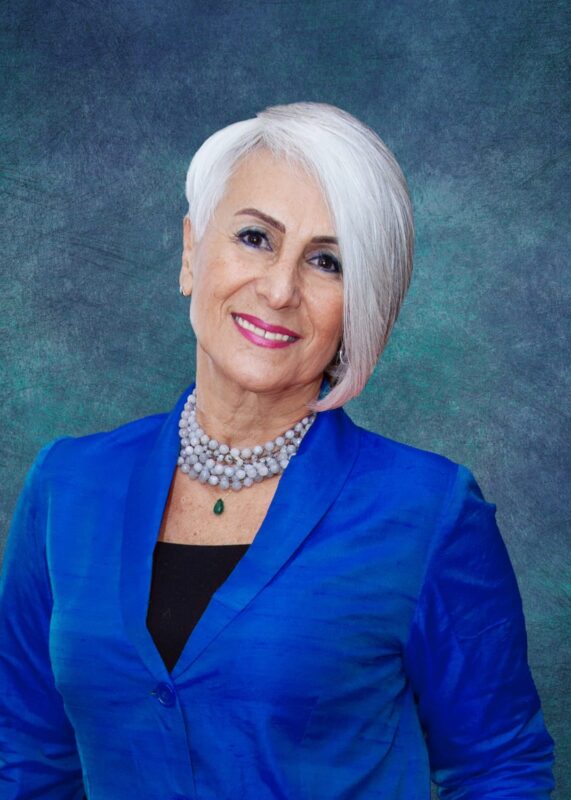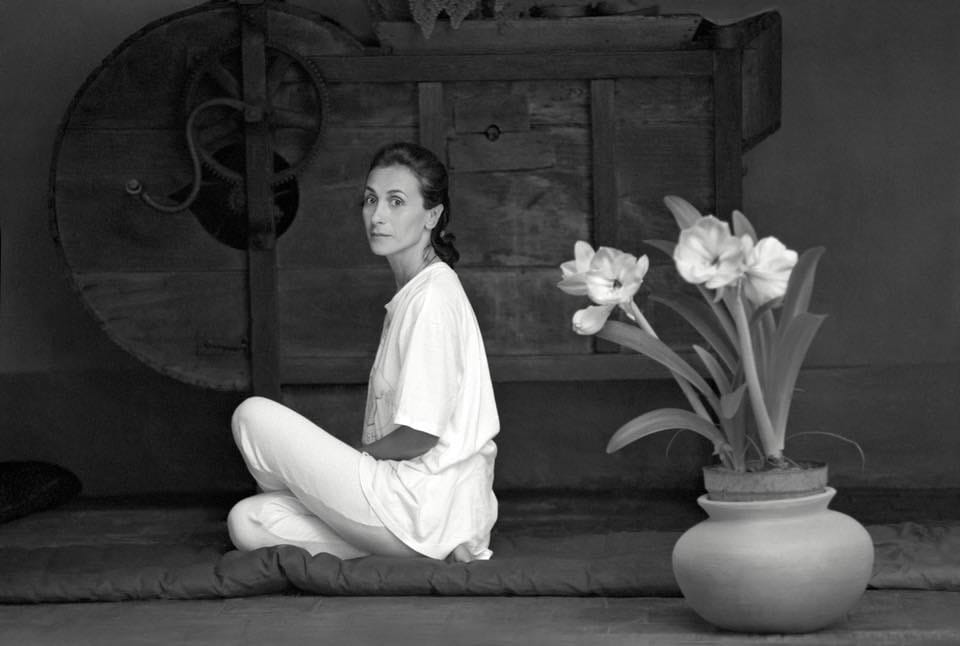Meet Viola Edward, an international expert in Stress Mastery and Breathwork for Recovery, Wellbeing and Mental Health, founder of Feminine Capital Forum, co-owner of Kayana Breathwork, she is author of two books: Breathing the Rhythm of Success and Who Makes the Bed? and co-author of six more, a multiple-award winner, including - Doctor Honoris Causa, Inspirational Woman and Outstanding Contribution to Mentoring.
Who is Viola? Define yourself!
I am a relational being, passionate, adventurous, and in love with humanity, people, and nature. I am an eternal student, a traveler who is madly in love with psychology. I am a polyglot, a sister, a wife, a real and true friend for many. Throughout my life, I have been driven by purpose, and I am always committed to being in service to people and to humanity at large. I always focus on giving back to those in the most critical situations or those struggling with injustice, inequality, and exclusion.
I am committed to sustainability and ensuring that I preserve every resource I was given. I thrive on collaboration and partnerships because I believe that Together is Better. As a social entrepreneur, business consultant, and personal advisor, I guide senior leaders and their teams to evolve the thinking within their organizations. We work together to build an inclusive and open culture that encourages dialogue and engagement. I aim to instill empathy into the fabric and DNA of the organizations I work with. I integrate healing modalities, such as Breathwork, in everything that I do. I continue to bring systemic breathing and thinking practices, and emotional efficiency to workplaces, as I believe that this is the future.
"My recipe for success is simple, and it is love, belief in humanity, and being action-oriented"
At the age of thirteen, you migrated with your mother and sister from Lebanon to Venezuela. Did this fact mark your life in a way that prompted you to be who you are today?
Yes, this had a significant impact on my life. We left Lebanon due to the war, which continued for 15 years, and it was the end of my childhood, I started working so early in life, at the age of 13. While it could be daunting for many, it makes me who I am today. It built my resilience, humility, and compassion, which I use today with my clients in my self-development practice. I had to focus on myself and navigating the challenges of life. I felt a sense of responsibility to care for myself, others, and the world. I wanted to make a difference so that others who go through the same experience can have the right support when they need it.
How were you as a kid?
As a kid, I was reticent and silent – not at all the lively, bubbly person that I am today. I suddenly lost my father at the age of 3, and my mother was pregnant with my sister. We were shocked, it was a tragedy. As a child, I shut down my emotions at a very early age. I felt my family had enough issues to deal with. This led me to become a silent, obedient, and bookish girl causing no trouble at all, which totally changed when I moved to Venezuela.
In 1993, with 21 of experience working in the corporate world, you renounced to your career as a successful marketing manager to follow your dream of becoming a Psychotherapist and Breathwork Trainer, when and how did you want to work in a different area?
I always wanted to be a psychotherapist and teacher. However, I had to interrupt my formal schooling at the age of thirteen. We migrated to Venezuela, and I had to work to support my mother as I was the eldest sister. At that time – in the '70s, I home-schooled myself. I kept looking until I found a solution. I found a school that admitted youngsters from the age of 16, I was not that age yet, but right there and then, I negotiated my way to admission. Since then, I followed the alternative education system. And this is what I teach today.
I worked in the corporate world for 21 years and then left to pursue my purpose and desire to serve others differently and to leave a lasting impact on society. This inspires my leadership journey to date.
You have been pioneering and developing mental health fitness and wellbeing in the workplace since the nineties, bridging the space between breathwork therapy and business management, in simple words, can you tell us more about what you do?
I do systemic consulting for organizations, as I believe that everything is interconnected. What happens in one area of the workplace will affect others. People are the heart of any organization, be it public or private. They reflect the impact of a situation, but the cause can be on other levels of the organization. Therefore, I look at the structure, strategy, vision, operational processes, and rewards. I apply the "triple impact" approach in business to deliver impactful solutions that can serve all. It focuses on productivity, people, and the planet (B Corp). I am also an advocate of the UN Sustainable Development Goals (SDGs) and I focus on helping my clients to integrate their profit and driving productivity with what is right for society and the planet. During this process, much awareness is raised on sustainability and social impact and how organizations can navigate a challenging and changing external environment while being socially responsible.
I also mentor the client(s) to be able to deal with the changes and lead the process in their organization. I keep on doing follow-ups throughout the years to ensure there is a clear roadmap for success and that milestones are achieved. This is a pivotal step to ensure that we are translating strategies into action.
"I observe and listen beyond what is said and shown on the surface. I trust my intuition. I complement it with the skills and experiences I gained throughout the years"
You are a multiple-award winner, including - Doctor Honoris Causa, Inspirational Woman and Outstanding Contribution to Mentoring. You are the author of two books: - "Breathing the Rhythm of Success," "Who Makes the Bed?" and co-author of 8 more. The founder of Feminine Capital Forum, Co-Creator of BQ- Emotional Intelligence, co-founder/owner of Kayana Consulting, Systemic Breathing, and GRIT Academy. You are part of the boards of several magazines and NGO's and serve as an ambassador for Human Rights and also Gender Equity. What's the recipe for your success?
My recipe for success is simple, and it is love, belief in humanity and being action-oriented. I work on myself continuously- clearing my own path and focusing on improving. I have a clear purpose, joy in my work. I believe that we are Better Together - we can form smart alliances while respecting our differences. This gives us a higher capacity to be flexible and adapt to the changes that life brings. In this way, we can make a difference in the world.
One of the UN Sustainable Development Goals (SDGs), precisely number 17, calls for more partnerships to be mobilized for sustainable development. I feel strongly about this goal and I am known to be a connector in my life. I bring people together for the common good. It is part of my mission to advocate for the values of peace, respect for human rights, and gender equality. Only through the full activation of the 17th SDG will we be able to achieve progress on the significant challenges facing humanity; it all starts with the individual, and we must all work together.
You are a philanthropist. You support the project Fashion for a Cause - "Charity on Wheels" by Winky Singh – empowering the forgotten population – women in prison, where this idea came from? What results have you gotten?
The idea to support those in need has been embedded in me through my mother. My love and bond towards women hold a special place in my heart. I found out about Winky's cause through a shared Network "Women Economic Forum – WEF". I am pleased to say that over the last 2 years, we have successfully gained international recognition for the work that we have been delivering. The cause has received 2 awards in the UK, and we have participated in forums across Europe to share our success story. We are in the process of expanding the number of prisons that we support and the bandwidth with mentorship for the women there.
My goal is to enable every human to unleash his full potential and to become the best version of himself or herself. For that, I have developed several knowledge-based courses, tools, and methodologies to enable people to uplift themselves, find happiness, and be resilient. This is much needed for the development of the self and, in turn, society.
"I think perfectionism is one of the major enemies of women and even some men. It causes so much disappointment and hinders success"
You live in Cyprus as a therapist and Business Woman, what differences and similarities do you see between the Business Professional Women of Cyprus and the ones from Latin America?
I see many similarities, importantly, the strength of our leadership. Also, family is very influential and present in the development of our lives as it gives us practical verbal and physical expression, love and care. As women we have so much inner power to transform society, and the unlock for that is to build resilience, motivation, and belief in ourselves with no limits.
While we have excellent leadership, characteristics needed in times of crisis, in many cases, we struggle with imposter syndrome, self-doubt, and other issues and I try to tackle that through my courses and therapy. I also find that we are the creators of harmony in society wherever we are. We are the promoters of peace and also the most affected by many of the world's problems. Through a strong sisterhood and collaboration, where women support each other, we can overcome all that.
Everybody has had dark moments in their lives, what have you done to get out of that phase?
My love of life and family sustained me at first. When that foundation was shaken, I went into private and group psychotherapy. I practiced meditation and mindfulness. Breathwork was the one practice that brought it all together for me. I keep learning, improving myself, and sharing my GRIT with others.
"Be as adaptable and flexible as you can without losing sight of your dream and purpose, learn in any way that you can so that you can kindly know more"
What does a typical workday look like for you?
Expressing gratitude for being alive is how I start my day. I am so blessed to be sharing life and business with my loving, creative, smart sister, and some activities with my adorable husband. We are all multi-talented in our home and businesses. We live in a beautiful place in Cyprus. There is a lot to see and explore. It is part of my routine as I work on both sides of the Island.
I represent several organizations as an ambassador for human rights and gender equality. My companies are all related to personal and business development. I also interview people from various backgrounds for several networks and magazines. This is another activity that I really enjoy.
My days are usually filled with wonder and communication and the structure would depend on where I am as I used to travel a lot. I delight in exploring different cultures and I speak Arabic, Spanish, English, and some French. The languages that I speak facilitate my interaction with people.
What do you love most about your job? & what is the most challenging part?
My intuition is my strong suit. I rely on it a lot. I love to teach the GRIT program and Breathwork and to train GRIT mentors and Breathworkers around the world. It is especially crucial for our wellbeing and mental health fitness. I love being globally connected and contributing to helping others find their right path in life. The challenging part is to find the right balance between all these activities and family life.
You have created Systemic Breathing, Why and how Breathwork is so essential?
My work is based on the method of "Conscious Connected Breathing", one of many techniques as part of 'Breathwork', a more general term that encompasses many different ways. Breathing is a life-sustaining activity that we practice instinctively from the moment we are born until the moment we die. Systemic breathing is also a somatic therapy. An hour-long session with the rhythm of the breath, used in this technique, influences neural activity, enhances memory recall, and expands emotional awareness. It helps to release suppressed blockages from the autonomic nervous system.
Since 1993, I have applied this breathing technique in various contexts, including recovery from addictions. I have found it to be compelling in supporting and advancing the treatments since our bodies hold our traumas and are also able to self-heal. The release of physical tension is the first effect and reframing past and negative experiences the second, which is completed by the self-integrated. It can be used as a stand-alone therapy or as an add-on to medical treatments. Conscious Connected Breathwork can also create access to an altered state of consciousness, often leading to the experience of bliss.
As an entrepreneur, what is the one thing you repeatedly do and recommend everyone else do?
I allow generosity to govern all my activities, and I am clear about setting boundaries. I observe and listen beyond what is said and shown on the surface. I trust my intuition. I complement it with the skills and experiences I gained throughout the years. That's how I developed discernment.
Also, in business as in personal life, I learned how to set boundaries at an early stage. This allows me to be kind and generous. This also provides an organic space for the relationship to develop and grow.
What is one strategy that has helped you grow your business?
I teach people conscious breathing so that they can heal victimhood. I follow my intuition, keep an open mind, continue learning, and develop discernment. I don't pursue perfectionism but do the best I can and support others in the process.
What do you like to do in your spare time?
To watch films, to read, to just be.
Many authors say women can and must strive to have everything, a shining career, a blossoming family life, and a perfectly balanced lifestyle. Women sometimes place unrealistic expectations on themselves if they believe they can have it all. You are married and have a big family so, according to your experience, what do you think about these statements?
I have been married for 17 years, and I don't have my own children. I have 3 stepsons and 4 grandchildren and many children of my heart - the people that I have been adopting throughout my life. I think perfectionism is one of the major enemies of women and even some men. It causes so much disappointment and hinders success. I think we can have it all, no matter how short or long our life is. Life still provides us with the opportunity to create, give, receive, have, and change.
"Perfectionism is a self-destructive and addictive belief system that fuels this primary thought: If I look perfect and do everything perfectly, I can avoid or minimize the painful feeling of shame, judgment, and blame" (Brene Brown 2000)
This need for perfectionism is one of the causes of the phenomenon of "Impostor Syndrome." Of course, women can thrive and enjoy life. We can fulfill our potential. But we need to do this with healthy self-esteem and self-care. Let's change this belief system from the need for perfectionism to the ability to create excellence and be in the present moment. To enjoy what we have here and now. One of my biggest passions is working with women. To help them break free from the one thing that still holds them back. To break free from the need for perfectionism.
What are your plans for the future?
I am studying to be able to advance B Corp and SDGs - how we can take them to every organization. With my sister, we have created the GRIT Academy. It's an online, live, and interactive program that focuses on making personal growth accessible for every participant. They are taught to use their own resources and guided and inspired to go through a meaningful and joyful transformation.I would love for everyone to be able to participate in the first stage of our program. It is a course that provides seven, two-hour sessions. Students are given a simple, achievable, and profound way to work with their resources. The tools are exercises created explicitly for Breath, Brain, Body, and Belief the "GRIT 4 Bs".
I would also like to train as many people as possible to continue to the second stage. This is a 64-hour training course for GRIT coaches. It is made up of four intensive modules. This enables each participant to glean a more profound knowledge of the GRIT process through practice and personal experience. As a result, they will become certified GRIT Coaches. I also want to be able to support more NGOs and foundations that are working for human rights and gender equality.
My aspiration is to see a rise in the number of empathetic, conscious, and compassionate leaders who can inspire and be inclusive of the people they lead. I want the future to be sustainable and for communities to grow through partnerships that can truly deliver and resolve complex societal issues through innovative and unique solutions. For that, my consulting firm joins forces with consultants across the world to deliver the best service to our clients.
There is still the glass ceiling for women in the world: Fewer opportunities, jobs underpaid just for that fact of being a woman, etc. Have you experimented with the glass ceiling? If yes, what are the biggest challenges you have faced and how have you overcome them?
I grew up in a home of women with my mother and sister. Our little house was our kingdom where we shared all the tasks in collaboration according to our resources and talent. It was also the first organization I was in and that I learned from. I personally have never felt this glass ceiling, nevertheless, I had many others to pass through.
Even though I grew up in Venezuela, and we had so much space to develop and expand, I was so engaged in my own battles. I worked so hard to heal myself from the pain of being an outsider, a minority, speaking with an accent. I was self-made, I didn't have all the diplomas that my colleagues had, my impostor syndrome made me suffer so much. So, as you can imagine, I had so many ceilings of a different nature to break. That is why I am in organizations that empower and enable women to move ahead in life.
What tips, can you give to young girls who want to become an entrepreneur like you?
Be as adaptable and flexible as you can without losing sight of your dream and purpose, learn in any way that you can so that you can kindly know more. Work to become the highest version of yourself, it is possible. Give yourself time for this as you have all the time in the world. Find your unique rhythm in life and respect it.
Who is the woman you admire the most, and why?
My mother, even though I was not always that clear about it in the past. She was an explorer and traveler in the 50s, which was not common at that time. She was also a foreign widow at the age of 24. This is all while pregnant and raising a 3-year-old daughter.
She survived, gave us the best life that she could, and learned how to live, sing and dance again. She was a very generous woman. Even though we had so little, she used to say there are others with even less. She taught us the value of generosity and vulnerability. She taught us so many things, she provided for us the best way she could and loved us in such a powerful way until her very last breath.
Something else do you want to add or share with us?
First, I want to thank you for this space. How you acknowledge women around the world with so much care, it is so beautiful. Then, I want to tell all readers to cherish life and be present - breathe consciously through whatever life brings you. Please be aware that you are not alone - reach out – we are Better together.
Name: Viola Edward
Sector: Wellness
Company: Viola Edward
Designation: Founder
Country: Cyprus
Social media:

